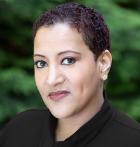|
Be it 19th century England, mid-century America, or modern day imagination, Harvard Business School faculty draw inspiration for their work from a wide swath of sources. Four of them took time away from their teaching and research to share the books that are piquing their interest outside the classroom this summer. 
I have two big books on my summer reading list. I’ve always loved what English professors call the bildungsroman (the novel of growing up and, for better or worse, becoming the person you are: e.g., Emma, Portrait of the Artist, The Magic Mountain, The Adventures of Augie March, and so on). And I have somehow never read David Copperfield, which begins with this irresistible sentence: “Whether I shall turn out to be the hero of my own life, or whether that station will be held by anybody else, these pages must show.” We should print that, as a reminder and an invocation, on each HBS diploma. The other book is Bourgeois Equality, the final volume of Deirdre McCloskey’s trilogy. McCloskey is an economic historian who develops a fervent defense of classical free-market liberalism, its values of liberty and dignity for commoners (i.e., the despised “bourgeoisie” of 19th century novels, 20th century socialists, and 21st century hipsters), and how those values have increased human opportunity, personal rights, and global well-being over the past 200 years. Her story focuses on the role of “ideas of betterment” and attitudes toward others’ success, and the perennial fragility of how those ideas and behaviors “are sustained in social ethics—a continually renegotiated dance.” Having read the first two volumes (Bourgeois Virtues and Bourgeois Dignity), I find that, this time, the publisher’s blurb is accurate: “a fact in every sentence, an idea on every page” and in prose that is witty, lucid, acerbic but respectful—a combination of Dickens and the best-read CFO you’ve ever met.
Professor Cespedes is the author of two books available here. 
Mohsin Ahmed’s Exit West is a great fiction read, especially with everything going on in the world at the moment. I’m also looking forward to the Theranos thriller, Bad Blood, by John Carreyou. But most of all, I’m looking forward to trying young adult fiction so that I can read a former student’s breakout hit: Children of Blood and Bone by Tomi Adeyemi. Professor Desai's new book, The Wisdom of Finance, is available here. 
2018 is the fiftieth anniversary of the assassination of Dr. Martin Luther King, Jr. and of Robert F. Kennedy. In recognition of this, I have been reading about the work of both these leaders. Taylor Branch’s Pulitzer-prize winning history of the civil rights movement under King, Parting the Waters, is serious, essential reading for those interested in the momentous events of the late 1950s and early 1960s and of King’s role in leading them. Two important biographies of Robert Kennedy—one by Evan Thomas, Robert Kennedy: His Life, and one by Larry Tye, Bobby Kennedy: The Making of a Liberal Icon, explore the aggression and ruthlessness of Kennedy’s early years as well as the compassion and wisdom he grew into after John Kennedy’s death in 1963. One closes all three of these books struck by the volatility and chaos of America in the 1960s and of the tragedy of both King and Bobby Kennedy’s early deaths (King was 39; Kennedy was 42), two men who sought to heal the nation’s wounds and unite its citizens. Professor Koehn's several books, including her new book Forged in Crisis, are available here. 
Every member of my household has signed on to a challenge to read 50 books this summer. Part of my goal is to learn as much as I can about digitization at the organizational change level. I am revisiting books on the industrial revolution as a contrast to the present day digital revolution. I am re-reading one of my favorite books – Work and Authority in Industry: Ideologies of Management in the Course of Industrialization. I am also reading more modern takes on the changes that we are seeing with books like The Second Machine Age: Work, Progress, And Prosperity In a Time of Brilliant Technologies by Erik Brynjolfsson and Andrew McAfee. A book that I am also enjoying is Contagious: Why Things Catch On by Jonah Berger. That book really taps into the psychology of virality. Wish me luck! Professor Neeley's book, The Language of Global Success, is available here. |
Post a Comment
Comments must be on-topic and civil in tone (with no name calling or personal attacks). Any promotional language or urls will be removed immediately. Your comment may be edited for clarity and length.
